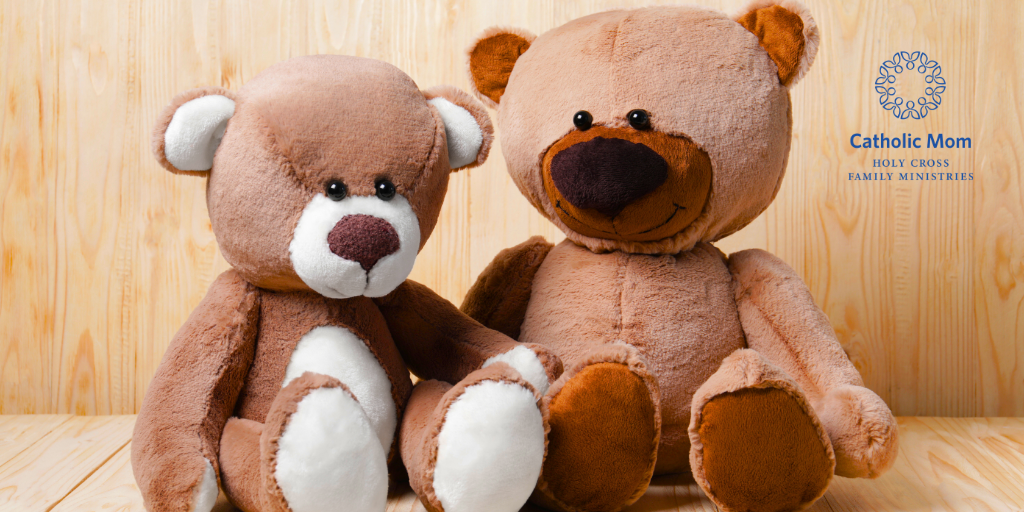
Kathryn Swegart describes the crucial role parents have in nurturing a sense of fairness in children.
Afternoon tea was interrupted by the sound of my two young grandchildren squabbling over two Teddy bears. Both bears had belonged to their father, and I wanted to pass them along to the next generation. The 4-year-old hugged two stuffed bears while his 5-year-old sister protested loudly. Surely, one of those toys belonged to her.
Heroically, I left my soothing cup of hot tea and waded into the fray. Instead of ripping one bear away from my grandson, I wisely decided to use the Socratic method of question and answer.
“What does fair mean?” I asked.
Mary quickly answered, “Fair means that Patrick has two bears and I have none and he won’t share.”
Patrick remained silent, clutching the bears more tightly. Tension filled the air, so I decided to take a conciliatory approach.
“I am sorry that I did not make it clear that one bear was for Patrick and the other bear was for Mary,” I said.
Patrick relaxed his death grip on the bears and Mary grew quiet. Now here was an interesting development. A grandparent had just apologized to them.
“So does fair mean to share?” I asked.
Both nodded in agreement. Now for the crucial moment. I looked at Patrick, and somewhat reluctantly he handed one of the bears to his sister. Mary was now delighted to hold the coveted prize.

A Child's Sense of Justice
Reflecting on this incident, I did a little research on a child’s sense of justice. To my surprise, many studies have been made on this topic. Dr. Donald DeMarco wrote about this subject for the Catholic Educational Research Center:
The fact that youngsters use the word fair long before they employ the word just is a good indication that the concept of fairness is more elementary than that of justice. It may very well be that the first moral judgment a child utters is That’s not fair! Virtually all studies on the subject report that children as young as four already have an active and flourishing sense of fairness. Accompanying their strong sense of fairness is their intense disdain for cheating, cutting in line, grabbing more than one’s share, and taking unfair advantage of others.
Dr. DeMarco also writes that young children have a “natural and keen appreciation of fairness.” He recommends that parents nurture that sense of fairness in little ones. Thus begins virtue education.
Teaching Our Children About Virtue
To take this humble Teddy bear incident one step further, let us not minimize its importance as a start in learning the practice of a holy life. Some Catholic schools even have a formal program called Education in Virtue. Throughout their school career, students learn about virtues as exemplified by the lives of saints and strive to cultivate holiness through prayer and role modeling.
Principles such as these can also be used at home. It does not have to be complicated. Catch a child doing something good. Praise the good deed of doing a chore without being asked. Praise an older child who volunteers to read to a younger sibling. Read books about saints and ask questions. What did this saint do that was kind and fair?

Little steps like these can help you raise a little saint. Perhaps one day that child may even be willing, all on his own, to share a Teddy bear with his sister.
Share your thoughts with the Catholic Mom community! You'll find the comment box below the author's bio and list of recommended articles.
Copyright 2025 Kathryn Swegart
Images: Canva
About the Author

Kathryn Swegart
Kathryn Griffin Swegart is an award-winning author of Catholic books for children. Kathryn and her husband raised three children on a small farm in rural Maine. She is a professed member of the Secular Franciscan Order and contributor to Magnificat. Visit her website at KathrynSwegart.com.


.png?width=1806&height=731&name=CatholicMom_hcfm_logo1_pos_871c_2728c%20(002).png)
Comments